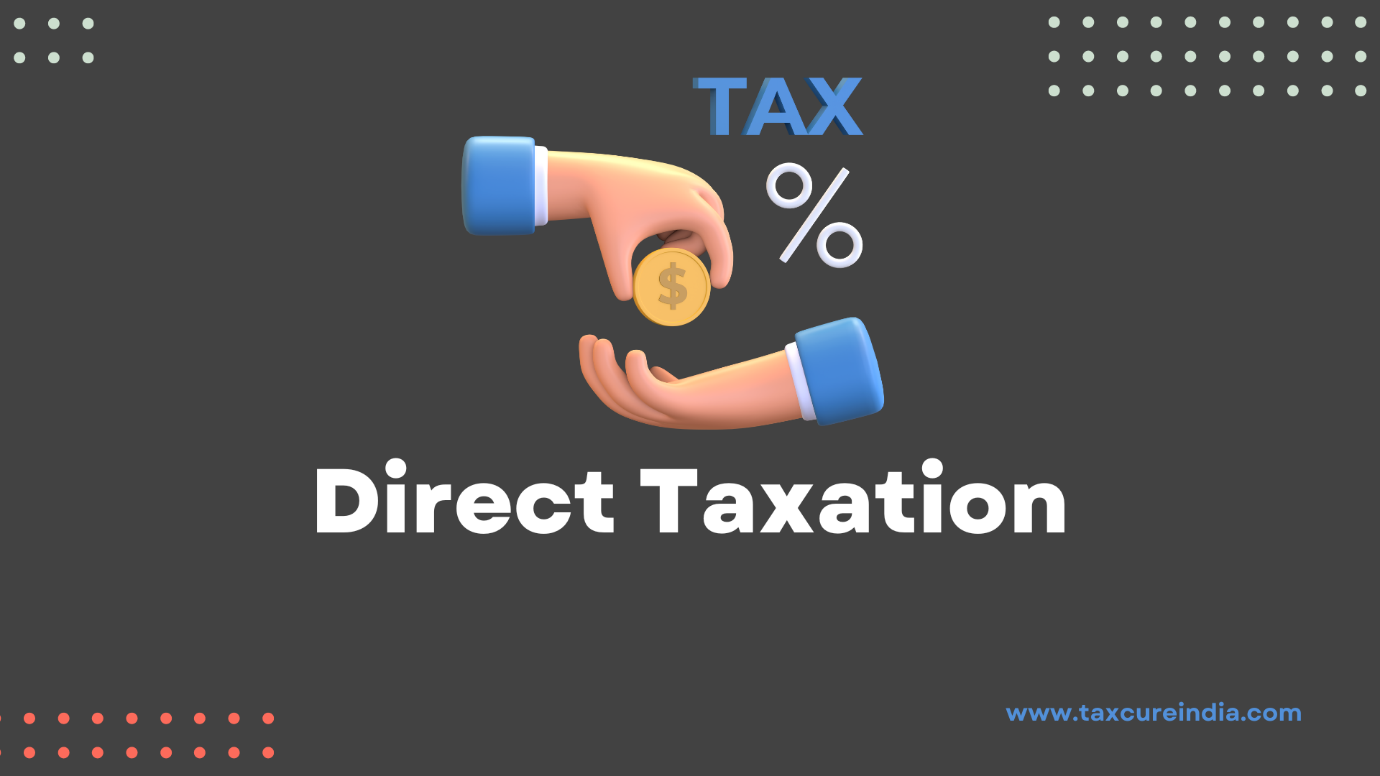DIRECT TAXATION
Direct tax consultancy with innovative tax efficient strategies, are an integral part of viable business decisions thus, helping our clients to attain their desired goals. We at TaxCure India strive to adopt a “result oriented approach” that is flexible and ensures timely results. It thus, enhances the effect of commercially viable decisions and minimizes the tax burden.

Direct Taxes vs Indirect Taxes
There are basically two types of taxes
- Direct Tax
- Indirect Tax
ADVISORY
It consists of associates and other qualified and experienced personnel having several years of experience and expertise in tax consultancy and management.
- Corporate Taxation Advisory Services: Advice on Income Tax matters, also including foreign taxation matters on Indian corporations.
- Tax Management Services: Complete and successful tax compliances.
- Appeals: Drafting and representing tax appeals before various appellate authorities like commissioners or Appellate Tribunal.
- Tax Planning: Advising clients on structuring tax-efficient business planning which includes restructuring of the business.
- NRIs taxation, Double Tax Avoidance Agreements Reliefs, Transfer Pricing etc are also some of the services provided.
- Co-operating with senior tax counsels for obtaining legal opinions, conducting tax litigations that are appealing court references and writing petitions etc.
Difference between Direct and Indirect Tax
A direct tax is a tax levied directly on a taxpayer and is paid straight to the imposing authority. An indirect tax is levied on goods and services and is paid by an individual to the intermediaries who then submit the tax to the government.
Types of Direct Taxes
The various types of direct tax that are imposed in India are mentioned below
- Income Tax: Depending on an individual’s age and earnings, income tax must be paid. Various tax slabs are determined by the Government of India which determines the amount of Income Tax that must be paid. The taxpayer must file Income Tax Returns (ITR) on a yearly basis. Individuals may receive a refund or might have to pay a tax depending on their ITR. Huge penalties are levied in case individuals do not file ITR
- Wealth Tax: The tax must be paid on a yearly basis and depends on the ownership of properties and the market value of the property. In case an individual owns a property, wealth tax must be paid and does not depend on whether the property generates an income or not. Corporate taxpayers, Hindu Undivided Families (HUFs), and individuals must pay wealth tax depending on their residential status. Payment of wealth tax is exempt for assets like gold deposit bonds, stock holdings, house property, commercial property that have been rented for more than 300 days, and if the house property is owned for business and professional use
- Estate Tax: It is also called as Inheritance Tax and is paid based on the value of the estate or the money that an individual has left after his/her death.
- Corporate Tax: Domestic companies, apart from shareholders, will have to pay corporate tax. Foreign corporations who make an income in India will also have to pay corporate tax. Income earned via selling assets, technical service fees, dividends, royalties, or interest that is based in India are taxable. The below-mentioned taxes are also included under Corporate Tax
- Securities Transaction Tax (STT): The tax must be paid for any income that is earned via security transactions that are taxable.
- Dividend Distribution Tax (DDT): In case any domestic companies declare, distribute, or are paid any amounts as dividends by shareholders, DDT is levied on them. However, DDT is not levied on foreign companies. Fringe Benefits Tax: Companies that provide fringe benefits for maids, drivers, etc., Fringe Benefits Tax is levied on them.
- Minimum Alternate Tax (MAT): For zero tax companies that have accounts prepared according to the Companies Act, MAT is levied on them.
- Capital Gains Tax: It is a form of direct tax that is paid due to the income that is earned from the sale of assets or investments. Investments in farms, bonds, shares, businesses, art, and home come under capital assets. Based on its holding period, tax can be classified into long-term and short-term. Any assets, apart from securities, that are sold within 36 months from the time they were acquired come under short-term gains. Long-term assets are levied if any income is generated from the sale of properties that have been held for duration of more than 36 months.
Advantages of Direct Taxation
- Promotes equality – Since direct taxes are based on the ability of a person to pay, it promotes equality among payers and citizens. Every person is charged a different amount, depending on how much they make.
- Promotes certainty – The good thing about direct taxes is that they are determined and made final before they are even paid. In the case of income tax, the annual tax is the same every year as long as the salary does not change.
- Promotes elasticity – Taxes are the earnings of the government, and when they fluctuate, the earnings also change. They can go higher or lower.
- Saves time and money – The government does not need to spend on the collection of taxes because they are already taken right at the source of the income. Some companies use automatic payroll deduction systems, which help save time and money
FAQ
1 What is meant by direct tax?
A direct tax is a tax that a person or organization pays directly to the entity that imposed it.
2 Is TDS a direct or indirect tax?
Tax Deducted at Source or TDS is an indirect type of tax
3 Why it is called direct tax?
Direct taxes are collected directly from income-earners.
4 Which is direct tax in India?
The direct tax includes income tax, gift tax, capital gain tax, Corporate Tax, etc
5 Who collects direct tax in India?
The Central Board of Revenue


1 thought on “DIRECT TAXATION”